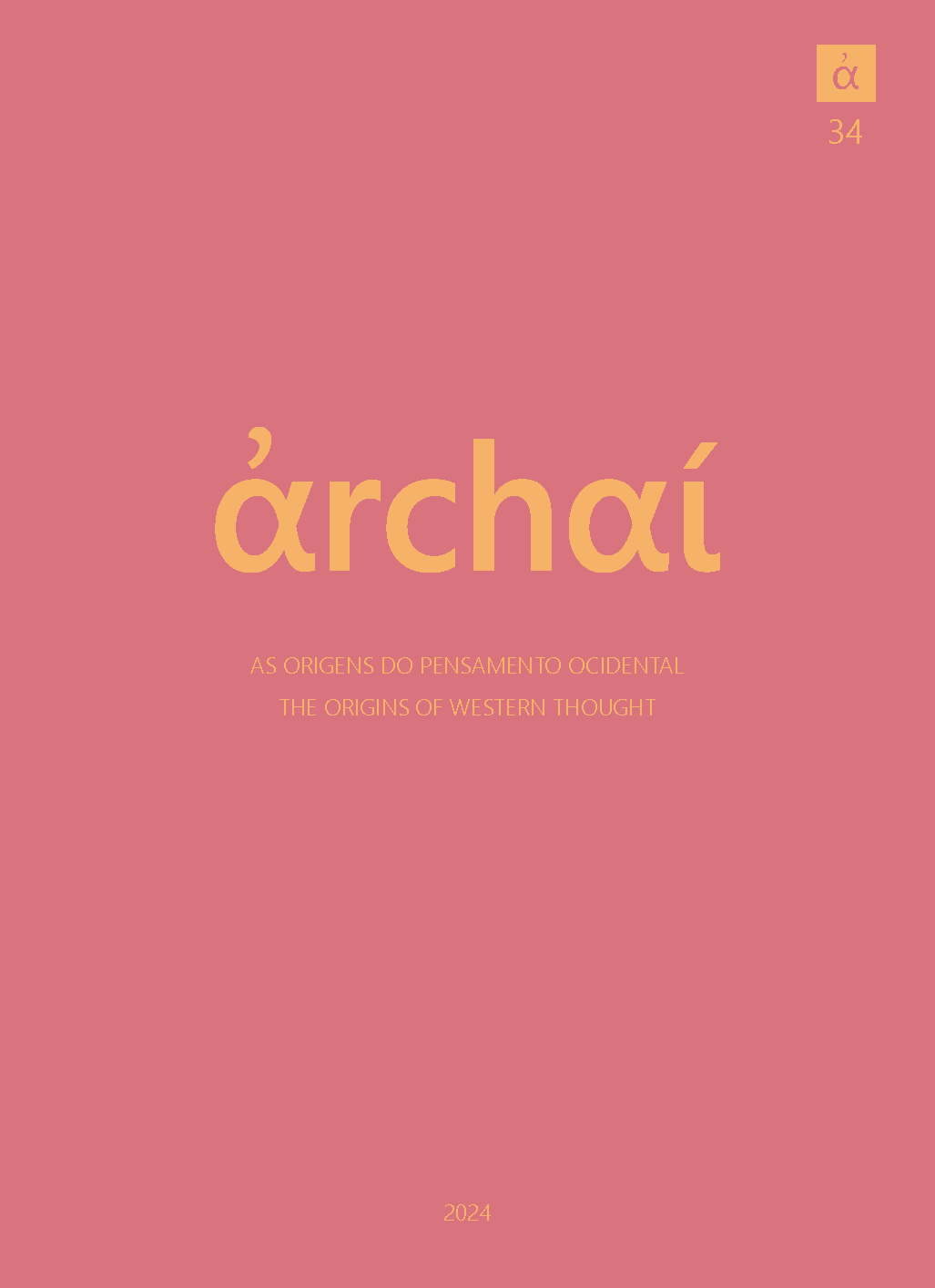Censorship and Freedom of Speech in two Scenes of Aristophanes’ Acharnians
DOI:
https://doi.org/10.14195/1984-249X_34_28Keywords:
Common Good, Censorship, Democracy, War, PeaceAbstract
This paper aims to show a comparative analysis of two scenes of the Aristophanic comedy Acharnians. On the one hand, I discuss the role of Amphitheus character, and on the other hand, I consider the ambassadors’ speech. By opposing these two play’s scenes, I support that democratic decision in assembly is a fertile ground to censure speeches about the good application of policies headed to the common good, and at the same time, it consecrates the freedom of speech of those who have personalist agendas at the expense of demos’ poverty. Thus, the speech in favor of the Peloponnesian War’s maintenance is a smokescreen for the political leaders’ enrichment. And because this is the only one for which exists freedom of expression, whereas its opposite, i.e., the pacifist speech, must be censored, even with violence.
Downloads
References
ANTUNES, L. (2018). Sófocles. Édipo Tirano Todavia, São Paulo.
DUARTE, A. (2005). Aristófanes. Duas comédias: Lisístrata e As Tesmoforiantes (Tradução, introdução e notas). São Paulo, Martins Fontes.
DUARTE, A. (2000). Aristófanes. As Aves (Tradução, introdução, notas e glossário). São Paulo, Hucitec.
KAGAN, D. (2003). A Guerra do Peloponeso. Novas perspectivas sobre o mais trágico confronto da Grécia Antiga Trad. Gabriela Máximo. Rio de Janeiro, Record.
NUSSBAUM, M. (2015). Sem fins lucrativos. Por que a democracia precisa das humanidades Trad. Fernando Santos. São Paulo, WMF Martins Fontes.
OLSON, D. (2002). Aristófanes. Acharnians (Introduction and Commentary) Oxford, Oxford University Press.
VIEIRA, T. (2014). Aristófanes. As Rãs (Tradução, introdução e notas). São Paulo, Cosac Naif.
Downloads
Published
How to Cite
Issue
Section
License
Copyright (c) 2024 Cristina de Souza Agostini

This work is licensed under a Creative Commons Attribution 4.0 International License.
Given the public access policy of the journal, the use of the published texts is free, with the obligation of recognizing the original authorship and the first publication in this journal. The authors of the published contributions are entirely and exclusively responsible for their contents.
1. The authors authorize the publication of the article in this journal.
2. The authors guarantee that the contribution is original, and take full responsibility for its content in case of impugnation by third parties.
3. The authors guarantee that the contribution is not under evaluation in another journal.
4. The authors keep the copyright and convey to the journal the right of first publication, the work being licensed under a Creative Commons Attribution License-BY.
5. The authors are allowed and stimulated to publicize and distribute their work on-line after the publication in the journal.
6. The authors of the approved works authorize the journal to distribute their content, after publication, for reproduction in content indexes, virtual libraries and similars.
7. The editors reserve the right to make adjustments to the text and to adequate the article to the editorial rules of the journal.



